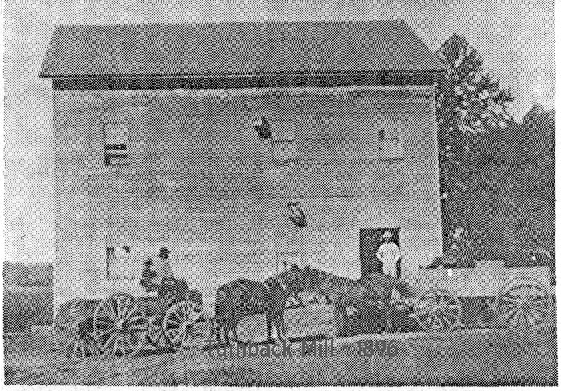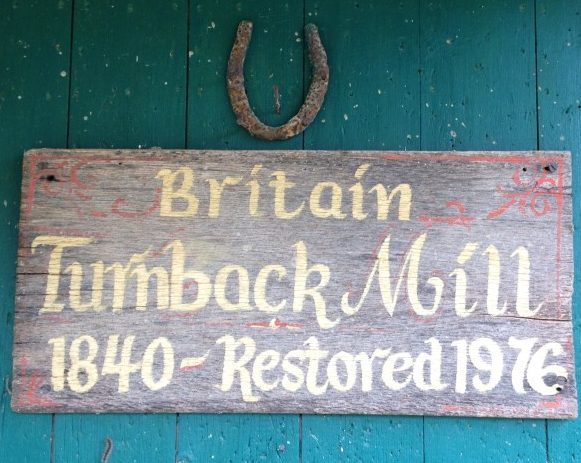1913-1945
Likins
The Likins family is thought to have been of Quaker stock, relocating to Missouri in stages from Tennessee between 1843 and 1851. In the records found during this research the spellings of the family name is about equally divided with “Likins” and “Likens”. The former has been chosen for this author by virtue of its consistent use in the records of deeds of Lawrence County. It is presumed the succession of clerks had a signed copy of the deeds in front of them.
The families were farmers/tradesmen, settling first in Greene County, MO. William started in the milling trade when he bought his first mill in 1853 with a family partnership. William and his son George S. then acquired Turnback Mill as part of their expanding milling business in 1857. This mill was replaced or rebuilt by the Likins shortly after its acquision. The restored mill now on the site is an attempt to recreate that this 1857 version.
In 1859, the Likins deeded ½ ownership in their property including the mill to George Johnson. There is no record of the nature of the partnership. Indeed, no George Johnson appears in the US Census for Lawrence County between 1850 and 1880. It is possible that this Johnson was a silent partner, providing capital. Moreover, a G. H. Johnson is noted as a neighbor and mill hand in the Likins mill operation Greene County.
The house up the slope from the mill was built for Charles S. Likins and his bride, Sarah Ann Adams, in the mid-1800’s, replacing an earlier log cabin. The house was originally a three-room structure with large sandstone fireplaces on each end and a porch across the entire front. Subsequently, a wing was added to the rear and a summer kitchen on the west side.
During the Civil War the Likins were Unionists, as was the majority in Lawrence County. Three members of the family, including Charles S. enlisted in the Federal Army. Sarah Ann’s brother, John Adams, may have operated the mill during that period. Neither of their mills was destroyed during the war, although local legend claims at least one skirmish occurred near Turnback Mill.
In fact, the First Kansas Volunteers camped at what is now Paris Springs, half a mile downstream from the mill, for a few days in July, 1861. One soldier’s letter survives, recounting an encounter with a Rebel cavalry patrol and the Union pickets. The same soldier mentions that the mill “…is at work night and day…” providing the troops with much needed flour.
Around 1892, the Likins family expanded Turnback mill to a two-storied structure and about doubled the footprint of the prior building. The 36” Bradford buhr was replaced with a Great Western roller and a Leffels water turbine was installed.

McCoy
Thirty-nine years after the Likins bought the original 50 acres; the property had grown to at least 95 acres. It was sold to G. John McCoy in 1896, who gave it to his son, Norman. Norman apparently operated the mill from the beginning.
McCoy produced at least four brand names in the mill; Harvest Girl corn meal, Oven Buster high patent flour, Lily Rose half patent wheat flour, and Choice Family flour. The brand names were continuation of brands used by the Likins.
A tale from the McCoy era was his practice of helping school children that had to cross the log footbridge across Turnback Creek on their way to school at Paris Springs. It is said that McCoy would shut down the water wheel during bad weather and personally assist in the crossing, endearing himself to the neighborhood mothers. Perhaps Norman was the prototype school crossing guard.
McCoy is given credit for adding the office lean-to to the building and for using a steam tractor for temporary power during the drought of 1902. Norman, however, did not keep the building and equipment in good repair.
Hockery
After about fifteen years in the milling business, Norman McCoy sold the mill and 64 acres to John F. Hockery, a millwright living in Republic, MO, in 1911. Hockery apparently repaired and improved the facilities and then sold to John W. Britain in 1912, about seven months later.
